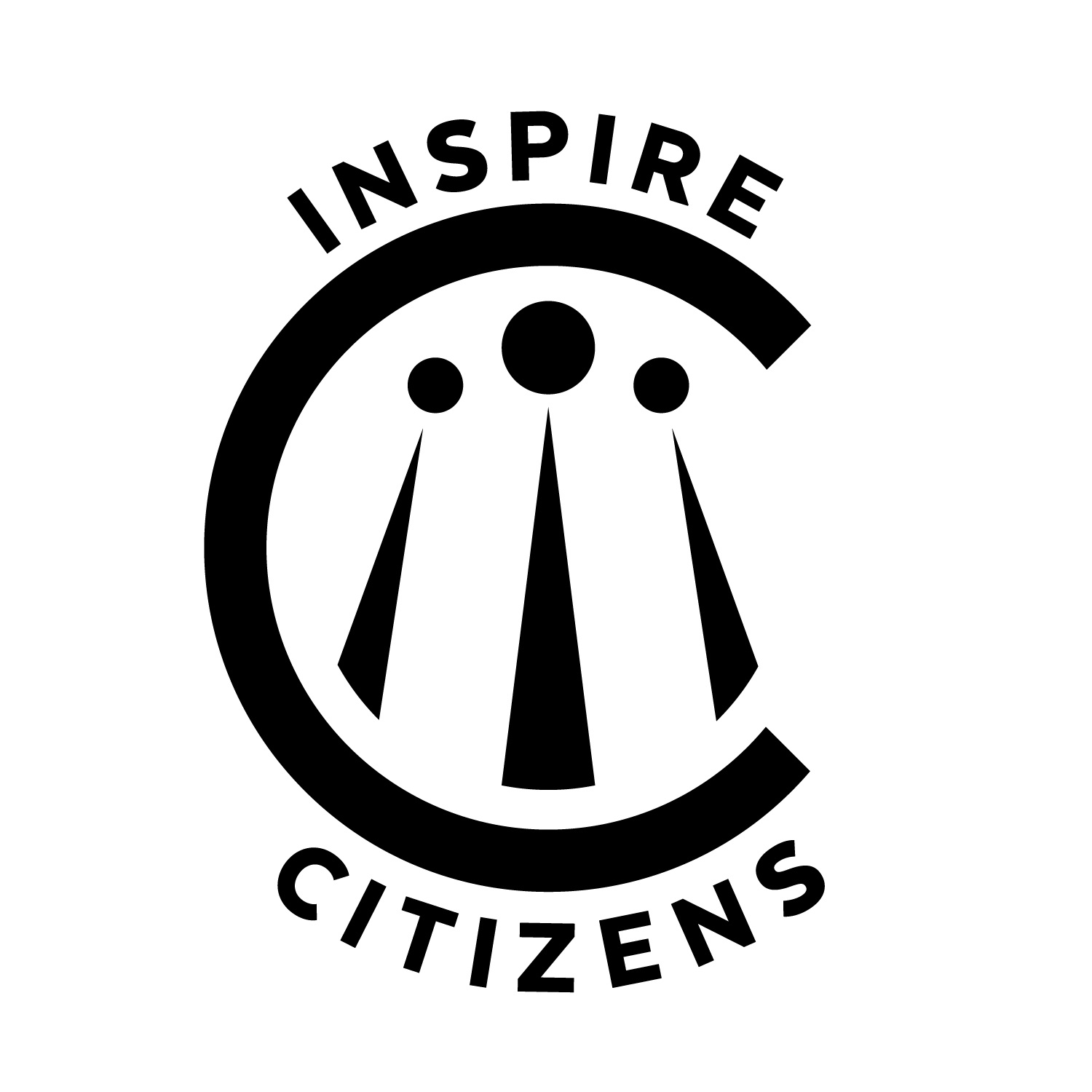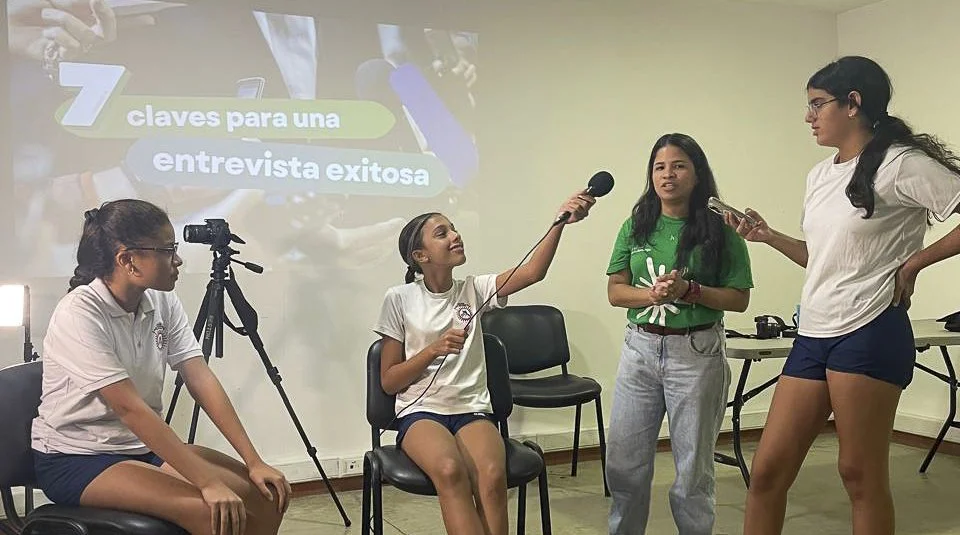5 Essentials from COJOWA: How One School is Getting Service Learning Right
At Cartagena’s Colegio Jorge Washington (COJOWA), the journey into meaningful service learning wasn’t about quick fixes or flashy programs. It was about building something that lasts. Jessica Benitez, COJOWA’s Community Engagement Coordinator, shares five essential reflections from their multi-year transformation—offering insights for any international school ready to do service learning with depth, respect, and purpose.
1. Know the Difference — and the Power — of Service Learning vs. Community Service
A key strategy in the development of stronger curricular service learning outcomes for Colegio Jorge Washington (COJOWA) has been to lean into networks that organically emerge from their closely connected partner, la Fundación COJOWA. (image supplied)
Many schools start with well-intentioned community service: food drives, fundraising events, or painting walls. At COJOWA, that’s where the story began too. But Jessica points out how these projects became the gateway to something more transformational.
“In fact, we still have a lot of community service projects,” she explains. These often emerge through rich connections via la Fundación COJOWA. “Sometimes that’s the way that we build our network. And then we use that network to build our service learning opportunities.”
The distinction is clear: community service often focuses on acts of giving; service learning intertwines action with deep curricular connection and reflection. By honoring both, COJOWA has found a rhythm between spontaneous good and intentional learning.
2. Codify Long-Term Goals in the Curriculum
A lightbulb moment came when the team recognized that for service to truly take root, it had to be embedded in what the school values most: the curriculum.
She puts simply, “in a school, what is in the curriculum is important.” Codification offers an anchor point for service learning ideals so they can remain fixed through periods of staff transition, leadership changeover and societal trends.
With that in mind, COJOWA has made service learning part of the school’s academic architecture—asking Spanish and Colombian Social Studies teachers at every grade level to co-design one service learning unit per year. This wasn’t extra work; it was a reimagining of existing standards through a lens of empathy and impact.
3. Invest in Partnerships with Purpose (and Sensitivity)
COJOWA’s deep community connections are a signature strength. But Jessica is candid about the responsibilities that come with them. One powerful learning moment came recently when an errant Instagram post from a service outing unintentionally ignited tension with a local partner.
Sensitivity and awareness are important guiding principles as students are prepared for responsible and respectful engagement. (image supplied)
“Every action that we do in a community has a lot of consequences,” says Jessica. “We are committed to a ‘no-harm’ approach, ” she adds, referring to a guiding principle rooted in Jessica’s background in peace and conflict studies. At COJOWA, they aim to prepare students and teachers not just for action, but for responsible and respectful engagement.
The situation with the local partner was resolved amicably and the lesson about taking more time to plan within the community context was incorporated into the COJOWA protocols.
4. Inspire and Equip Teachers from Where They Are
Introducing service learning might seem like a huge leap of commitment on behalf of educators, but the approach that has yielded a strong foundation for COJOWA is to support the transition in stages. Project-based learning (PBL) represented an attainable first step for seasoned and newer educators alike.
With increased traction for PBL unit development, COJOWA turned to outside specialists to assist and encourage the work that educators sought to do.
Inspire Citizens Co-founder Aaron Moniz and Global Collaborations Lead Scott Jamieson began by helping educators recognize their most effective efforts that were already playing out in their classroom practice. By assisting in the reorganizing of unit plans, Inspire Citizens team members facilitated successful upgrades of unit plans to feature genuine service learning objectives. Teachers benefitted from team sessions as well as individualized support to make enduring changes in their core practices.
One of the clearest signs of impact has come through the voices of teachers themselves. Jessica recalls a fifth-grade teacher who transformed her approach after adopting a service learning mindset.
In the words of the teacher, “before service learning, I was teaching the same way every year. Now I’m teaching the same standards, but I have a completely different mindset.”
That teacher’s unit, focused on biodiversity and the tropical dry forest, didn’t just check boxes — it came alive. She described feeling like a different person, energized by the knowledge that her classroom work was contributing to real-world change. Jessica recalls the teacher telling her, “Service learning changed my teaching life. Now I’m a different person because I know that every day I’m doing something for the world.”
Instead of mandating a new model, Jessica and the Inspire Citizens team acknowledged teachers’ existing efforts and helped them reorganize around new, more impactful outcomes. Over time, this empowerment led to greater ownership and sustainability, with many teachers now designing units independently while checking in with Inspire Citizens collaborators as needed.
5. Make It Strategic — And Sustainable
This transformation wasn’t a one-off initiative. It was a core pillar of COJOWA’s strategic planning from the start, and remains central in their upcoming vision.
Focusing on simplicity and sustainability opens the door to genuine engagement opportunities that are stage-appropriate. (image supplied)
She adds that the service mindset now begins in preschool with “circle time” and is evident all the way through to upper school. The focus isn’t just on what students do, but how they think—building a culture where even the youngest learners ask, How can I use this to serve others?
A Culture of Commitment
From policy to pedagogy, COJOWA’s story is about consistency over time. Their “golden age” of service learning hasn’t been accidental—it’s been intentional, collaborative, and years in the making. It requires a vision informed by ideals, along with expert support and encouragement from all stakeholders.
“We’re not adding more,” explains Jessica. “We’re strengthening what we have.”
Jessica Benitez is quick to share credit, pointing to the role of school leadership, teachers, parent networks, and professional support from Inspire Citizens. But it’s her belief in long-term change, built responsibly and respectfully, that makes this journey one that educators around the world can learn from.
Learn more about all-school service learning development



